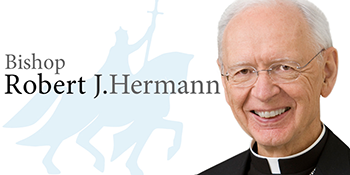 As we hear in the readings for the Nativity of John the
Baptist, God will not tolerate the status quo when it comes to saving
mankind.
As we hear in the readings for the Nativity of John the
Baptist, God will not tolerate the status quo when it comes to saving
mankind.
In the first reading, the Lord calls His prophet from his
mother’s womb. “He made of me a sharp-edged sword, and concealed me in
the shadow of his arm.” Scripture scholars aren’t clear as to the
specific identity of this prophet. It might refer to Isaiah himself, or
to another future prophet, such as John the Baptist, whose birth we
celebrate today.
He called this prophet from his mother’s womb,
“So that Jacob may be brought back to him, and Israel gathered to him,
and I am made glorious in the sight of the Lord.” The mission here is to
restore and reunite, not only the people of Israel, but also of the
whole world. “I will make you a light to the nations, that my salvation
may reach to the ends of the earth.”
Hence, we’re already, by our
birth, named as beneficiaries to this prophet’s accomplishments. This is
the power of God’s word in Genesis 3:15, the promise of a savior,
moving relentlessly forward.
The whole Old Testament is simply the story of God’s intervention, reaching out again and again to call mankind back to Himself.
In
the second reading, Paul names two individuals whom God seemingly
called out of nowhere to move His mission of salvation forward. The
first is King David; the shepherd with a ruddy face that God called to
become king of Israel. Neither Jesse, David’s own father, nor Samuel the
prophet, thought of David as kingly material. The glory goes not to the
one chosen, but to the one who chooses, God Himself.
It isn’t our
arrival on the scene that gives us importance, but God’s calling us to
arrive on the scene for His glory. It has been 2,700 years since Isaiah
wrote the first reading. Hopefully, in another 2,700 years, we’ll have
had 2,650 years of practice glorifying God.
The second person Paul
names is John the Baptist. He had a tough time coming. His mother was
barren even into her old age. When God revealed to Zechariah, his
father, that Elizabeth would have a son in her old age, Zechariah was
rendered speechless.
God intervened in the status quo with the
name of John the Baptist. The people wanted him to be named after his
father, but Elizabeth said, “No, he will be called John.” Zachariah, who
heard none of this, was given a tablet on which to write his name, and
his response was: “John is his name.” Mission accomplished: He got back
his speech!
“Then fear came upon all their neighbors, and all
these matters were discussed throughout the hill country of Judea. All
who heard these things took them to heart, saying, ‘What, then, will
this child be?’”
While John the Baptist was relatively unknown,
his tongue was loosened with the fire of the Holy Spirit. Even the
scribes, the Pharisees and great sinners came to the desert to learn
what God was doing through an unknown man in a barren land.
There
is divine beauty in the Holy Spirit awakening Elizabeth’s barren womb,
so that the fruit of that womb would awaken a barren world to the birth
of its savior.
This says much about your life as well as mine. It
isn’t about who we are, when we arrive in this world, but rather who it
is that has called us into life and is constantly calling us to a life
of eternal glory.
So often we feel as spiritually barren as
Elizabeth felt before she conceived. Like Elizabeth, we need to depend
upon help from above to experience God bringing us alive. To become
pregnant, Elizabeth needed more than her husband’s help; she needed
God’s intervention.
Sometimes we might not feel the consolation of
God in our lives and become discouraged. That is exactly how Elizabeth
felt before she conceived John.
Sometimes it takes extreme poverty
to awaken us to the futility of trying to make ourselves holy. God
wants our holiness far more than we do. He simply wants us to invite Him
into our lives in a deeper way, so that His kingdom moves forward and,
sometimes, at the expense of our own kingdoms.
With God, our inner
poverty leads us to give Him permission to move forward with His
kingdom. There is nothing God desires more of us than this.
The
more we trust God in our lives, the more we laugh at our thwarted and
foolish plans for self-salvation, the more we abandon our foolish plans
to save ourselves, the more we’re grateful that God interpreted our
prayers so as to bring about His true glory.
Jesus and Mary have
given us the language we need to set God free. For Jesus, it was, “Not
my will, but thy will be done.” With Mary it was, “Let it be done to me
according to thy word.”
Making this a daily habit in our lives
brings incredible peace and freedom. One time-tested way is to simply
see each moment of every day as a manifestation of God’s will. That
means that at the beginning of each day we simply pray: “Lord, I don’t
know what will happen today, but help me to embrace each moment as a
manifestation of your will.”
At noon we may renew this prayer and
in the evening reflect back and simply realize that we prepared
ourselves for crucifixion, but it didn’t happen.